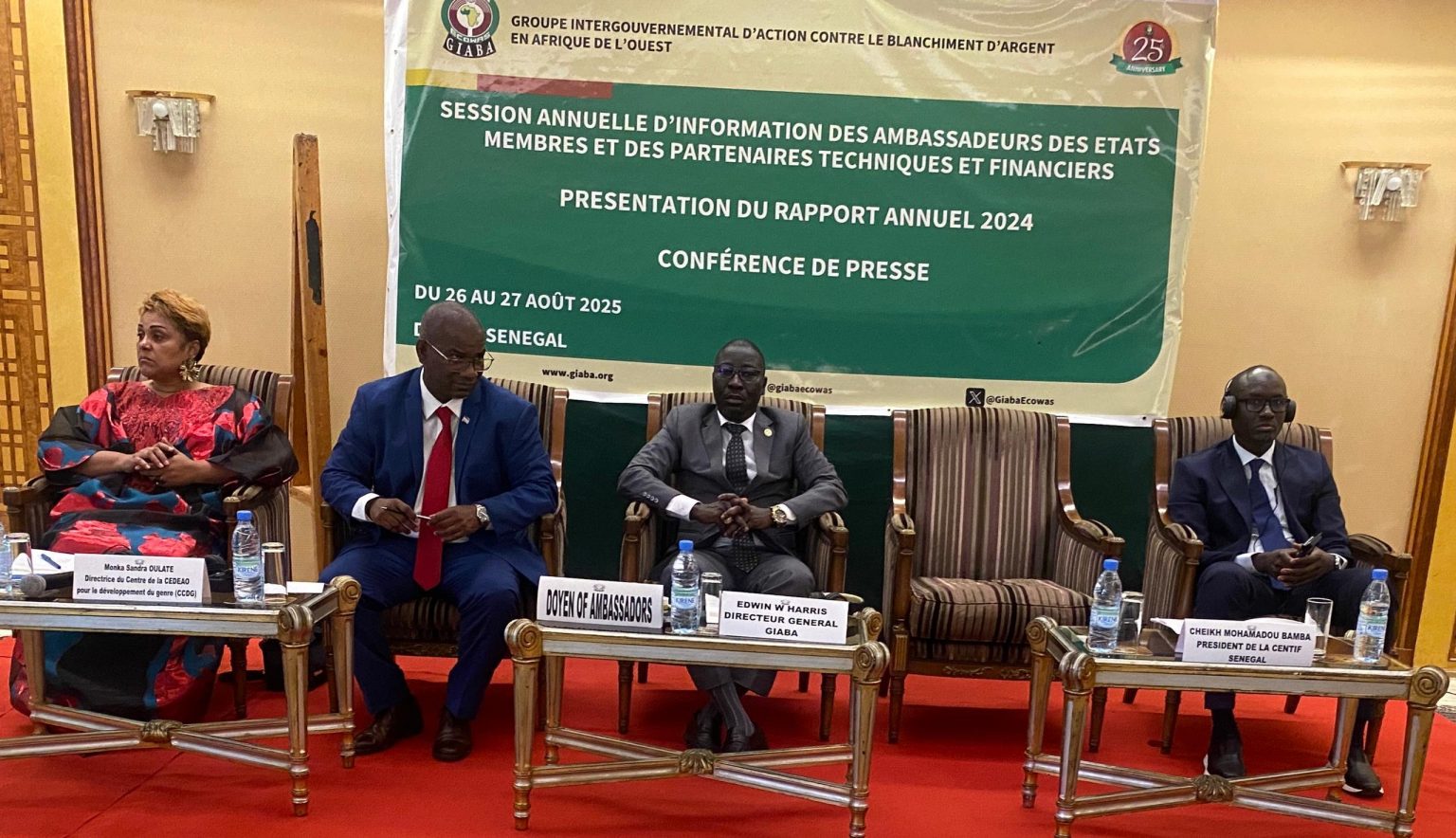STAKEHOLDERS in the fight against money laundering and other economic crimes in West Africa have blamed the devastating insecurity in the region on the increasing wave of financial crimes.
The Doyen of Ambassadors and Cabo Verde’s Envoy to Senegal, Ambassador Herminio Muniz, who spoke at the Annual Briefing Session for ECOWAS Ambassadors and Development Partners, organized by the Inter-Governmental Action Group against Money Laundering in West Africa (GIABA), in Dakar, Senegal, feared that there would be no meaningful development in the region without a committed emphasis on combating money laundering.
GIABA, a specialized institution of the Economic Community of West African States (ECOWAS), was established 25 years ago to combat money laundering, terrorist financing, and proliferation financing (ML/TF/PF) in the region by strengthening the capacity of its member states.
Applauding the institution for its efforts over the years, Muniz believed that while progress has been made, there is still a need for synergy through sharing of valuable information to ensure greater results.
“They are the basis of the lack of security in our respective states. We need to face financial crimes together to overcome it by sharing information.
“This is the 25th year of convergence to fight money laundering. We understand that GIABA is hailed for the work that is of paramount importance. Though we have made progress despite challenges, it is a fight for all ECOWAS states because there will be no development without laying serious emphasis on money laundering.”
The envoy, however, feared that to defeat terrorism, the region must have a strong economy, “and the fight must be in synergy with GIABA; all working together, sharing experiences and fighting against economic crimes because they are the basis for the lack of security in our respective states.”
Adding: “We need to face financial crimes together to overcome it by sharing information. That is the reason the media has a key role to play,” he said.
Declaring the two-day meeting open, the Director General of GIABA, Mr. Edwin W. Harris Jr, said the establishment of GIABA in the year 2000 by the authorities of ECOWAS was in response to the devastating effects of economic and financial crimes and a clear demonstration of political will to address the challenges within the region.
“Thus, the primary mandate of GIABA is to develop measures to protect the economies of member States from abuse and the laundering of the proceeds of crimes, and to strengthen cooperation among its member States.
“In addition, GIABA is a Financial Action Task Force (FATF)-Styled Regional Body (FSRB), with the responsibility of assessing member States’ compliance with acceptable international AML/CFT standards.”
The D.G was elated that records have shown commendable improvement in the implementation of the Anti-Money Laundering and Combating the Financing of Terrorism (CFT) regime across the region.
“Member countries have made significant progress and are implementing their AML/CFT regimes at various levels. Overall, the improvement in the AML/CFT regimes of member States has contributed to good governance, enhanced development, and security in several member States.
“More importantly, I am happy to inform you that GIABA has concluded its Second Round of Mutual Evaluation of its Member States. Our member States are at different levels of compliance, and we are encouraging them to take necessary steps to seek re-rating on their technical compliance, as well as other preparatory steps, as we commence the third round of Mutual Evaluations,” he added.
While reeling out some of the institution’s achievements, the D.G called on every stakeholder to support the fight against money laundering.
“Let us raise our voices, speak out, get up and act as necessary until each milestone is achieved. Do not keep quiet. Let your voices be heard, raise them within your sphere of influence, be part, be counted, and we will be remembered for good,” he said.
In her remarks earlier, Director, ECOWAS Gender Development Centre, Sandra Oulate Fattoh, said the threat of money laundering has profound implications for governance, social development, and gender equality.
While GIABA has continued to play a central role in safeguarding the region’s financial integrity, protecting its economies from the threats of money laundering, terrorism financing, and related crimes, Fattoh added that women and vulnerable groups often bear the heaviest burden of insecurity and poverty that illicit financial flows perpetuate.
“As a sister institution within the ECOWAS family, the Gender Development Centre strongly affirms the need for collaboration between our mandates.
“The fight against financial crimes is inseparable from the fight for inclusive development. Empowering women and youth, strengthening families, and ensuring equal opportunities will make our societies more resilient to the destabilizing forces that GIABA confronts daily,” she said.

